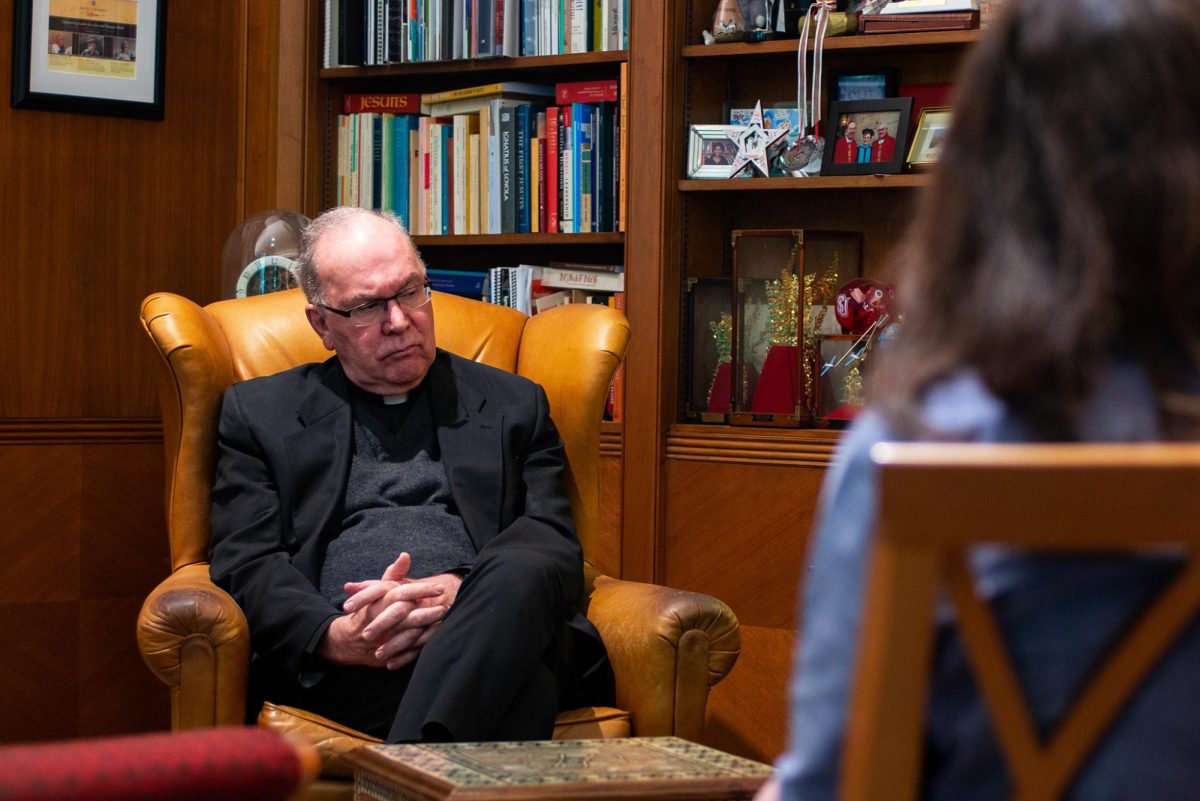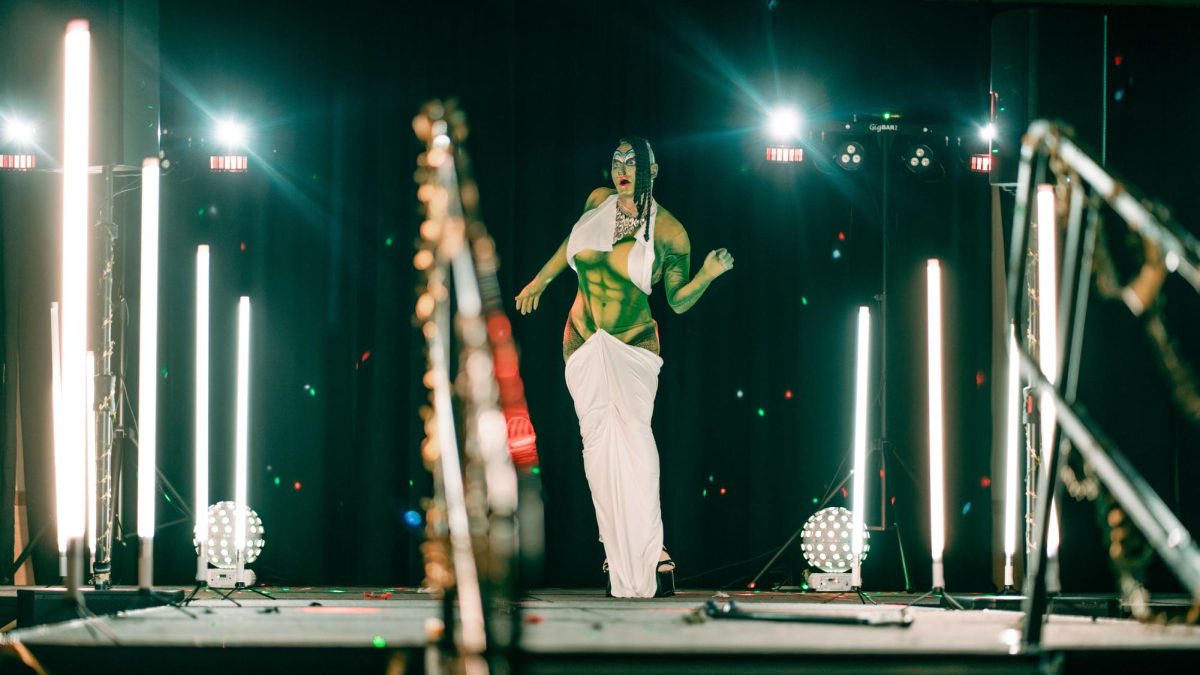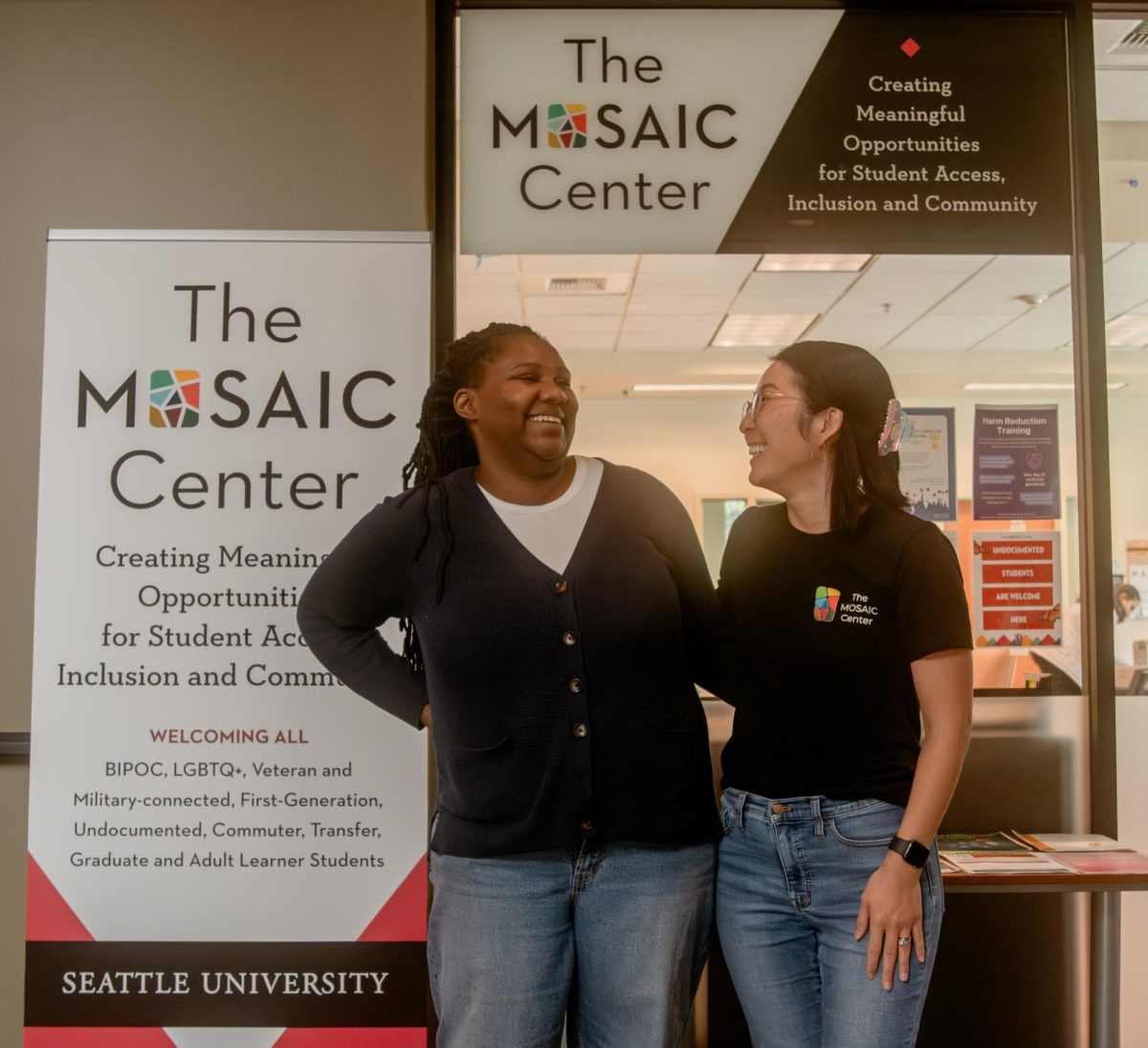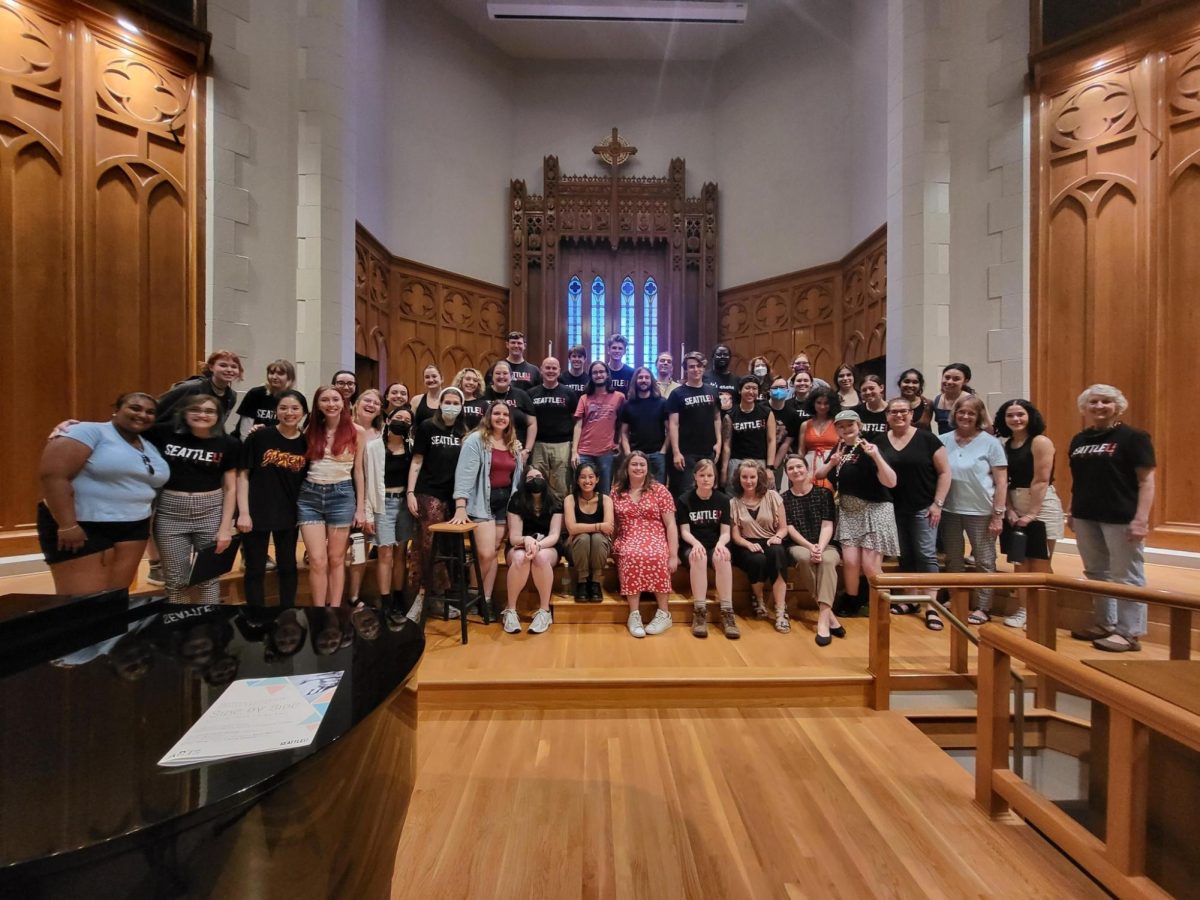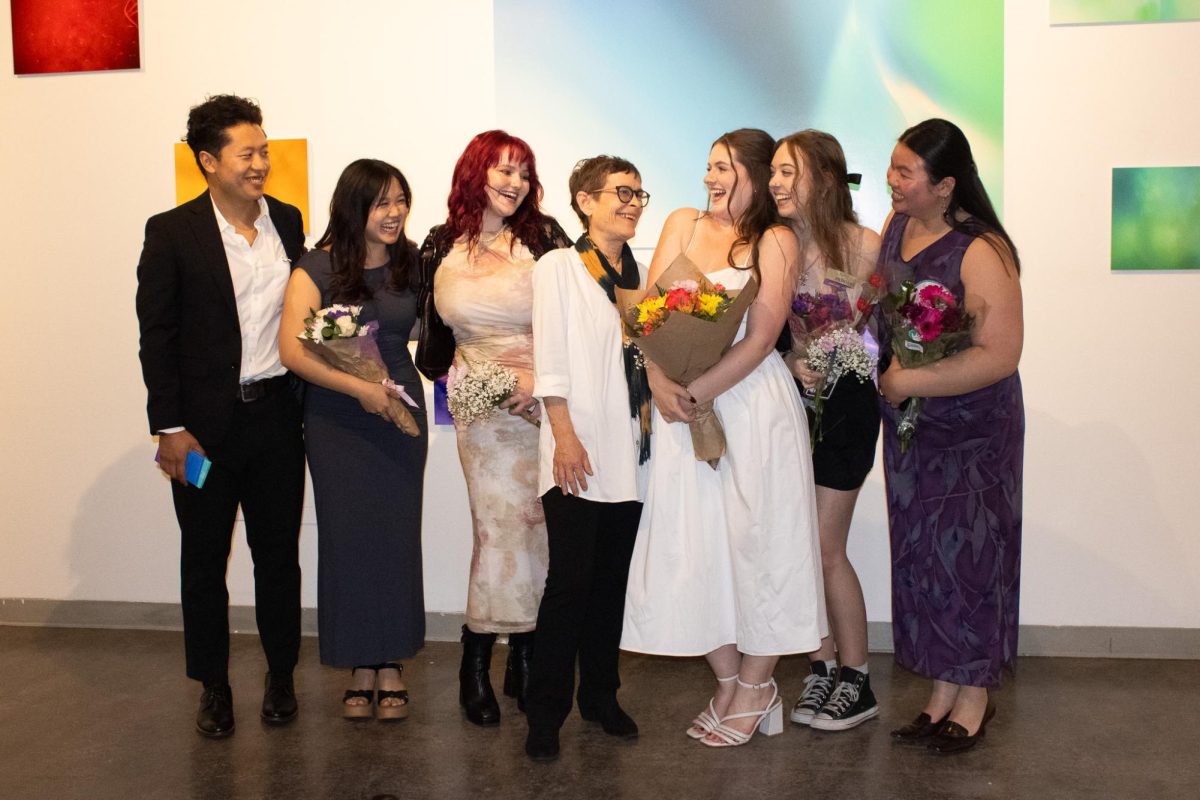The energy was tense in Bannan room 407. Following an introduction from David Powers, the dean of the College of Arts and Sciences, Charlotte Korchak, senior educator and director of international student programs for Stand With Us (SWU), began speaking.
“It is important to note that I am a Zionist. I believe in Israel’s right to exist in the land of Israel. And there’s no real challenging me on that,” Korchak said, prefacing that it is important to know the biases of any speaker, since no speaker is truly unbiased.
SWU is described on Seattle University’s ConnectSU page as “a nonprofit organization dedicated to educating the public about Israel and combating antisemitism.” On their website, the group describes themselves as “inspired by [their] love of Israel.”
This event, as well as a Zoom webinar with Dr. Hanan Ashrawi, internationally recognized as a distinguished Palestinian leader, legislator, activist and scholar, are extensions of the College of Arts and Sciences series titled “Confronting Conflict” which has held a sequence of talks on the Israel-Gaza conflict.
Multiple faculty members have worked together to help create this series, including Beatrice Lawrence, associate professor of theology and religious studies specializing in Hebrew Bible and Jewish Hermeneutics, though she was not part of the group that requested SWU be hosted for the series.
“I am really moved by our campus community,” Lawrence said. “Because there is so much interest in education, in learning and discussing. I see an incredibly engaged community that wants to incorporate intellectual examination with spiritual commitment.”
According to Powers, SWU was hosted per student request, and Ashrawi was hosted on faculty request. Lawrence noted that the initial speakers being invited to campus to discuss topics in relation to Israel and Gaza were predominantly professors while the two more recent speakers are advocates for specific causes.
“We were looking specifically at an academic perspective. The events involving advocates or advocacy, I think are different,” Lawrence said. “It is necessary to listen, to be present, to think about how that information is connecting with individuals, but we were specifically focused on professors [at first].”
While the presence of SWU on campus was not unanimously appreciated, university administration believes that shouldn’t be the reason to not host the organization.
Powers explained that the College of Arts and Sciences draws the line around any group that they believe promotes violence or hate speech, a bar he didn’t see SWU as meeting. He stressed that the goal is not to tell students what to think, but to help guide productive and informed discourse around current events.
“I did not present any group, not one of these speakers, because it was something I personally wanted to promote,” Powers said. “This was about having speakers for our students to hear so they heard different perspectives.”
While concerns were raised about SWU being hosted on campus, Powers explained that similar worries have been raised to him about other speakers who have been included in the series. However, this event drew criticism more heavily than others.
Rachel Luft, an associate professor of sociology, was heavily critical of the school’s choice to host SWU given the allegations the group has faced.
SWU has faced accusations of attempting to silence a professor for expressing viewpoints in support of Palestine at George Washington University (GWU). The GWU professor has accused SWU of conflating critique of Israel with antisemitism, and unfairly targeting her.
When asked about this story at the event, Korchak claimed that SWU raised complaints of the professor singling out Jewish students multiple times to administration, and only took legal action as a last resort.
SWU has also been accused of pushing universities to crack down on Pro-Palestinian student groups, and pushing colleges to adopt definitions of antisemitism that include critiques of Israel.
This is the issue that Luft sees with hosting SWU on campus.
“I support free speech and believe the university must tolerate a diversity of viewpoints,” Luft said. “Instead, it is because Stand With Us is itself repressive, using aggressive and bullying tactics to shut down opposing viewpoints, including steamrolling students and pursuing legal action against faculty who express differing views on Israel.”
Korchak denied allegations that SWU silences civic critique, stating that the organization pushes universities to adopt the International Holocaust Remembrance Alliance definition of antisemitism, which does draw a distinction between antisemitism and critique of Israel.
Luft added that she believes that SWU is an organization “rooted more in ideology than in scholarship” and that it is not only a disservice but irresponsible to bring speakers to campus who are known to be intolerant. According to Luft, many faculty in the College of Arts and Sciences feel the same way.
Throughout the talk, Korchak challenged the description of Israel’s history as a colonialist state, challenged the death toll numbers from the Gaza Health Ministry, claiming that they are controlled by Hamas, and said that UN child death tolls need to draw a line between non combatant children and child soldiers. While drawing a distinction between antisemitism and criticism of Israel, Korchak said that criticism of Israel is often a tool to mask antisemitism from the left, points challenged by numerous audience questions.
Reign Riley, a third-year double major in film and sociology, had a contentious back and forth with Korchak at the event, over whether Israel is impeding aid into Gaza, during which he accused SWU of lying on its website.
“They seem to pretty openly just be a group that’s very focused on defending Israel and justifying its existence and its actions, and that essentially just renders them as a propaganda group,” Riley said.
Luft characterized the group similarly to Riley while also stating that Korchak was “disrespectful and evasive” in her engagement with student questions.
Assistant Professor in Film and Media Alexander Johnson echoed the sentiments of Riley and Luft.
“In my opinion, Stand With Us’ attempts to silence those who they disagree with is anathema to the fundamental values of Seattle University, and of institutions of higher learning in general,” Johnson said. “I’m not sure how this kind of dogmatic and propagandistic presentation is meant to foster dialogue or understanding of this urgent and complex issue.”
Powers did not see concerns around SWU’s previous actions as justification to prevent them from speaking on campus.
“I knew there was conversation and concern, but based on what I heard from multiple folks, it was not at a level of concern that meant we shouldn’t have the group here,” Powers said. “It is not something that had happened here, and it’s something that happened as a function of them being on campus.”
He added that refusing a group the ability to speak because of allegations that they were suppressing speech is a difficult decision to make. Powers explained that the role of a university should not be to tell students what to think about a specific issue, but instead to teach students how to intelligently think about and engage with issues and come to their own conclusions.
Prior to any speaker series, Riley believes that the university needs to have an open forum to directly hear student concerns. Riley isn’t necessarily opposed to the university hosting groups like SWU, seeing value in confronting ideas many haven’t been exposed to before, but he sees hypocrisy in the fact that Jewish Voice for Peace (JVP) was denied the ability to speak on campus earlier this year at a rally and teach-in for Palestine.
“I think learning to confront [new ideas] and learning to engage with that is helpful, but if Stand With Us is going to come, then people like Jewish Voice for Peace should definitely be welcome on campus,” Riley said.
Powers was not involved in the decision regarding JVP, but he explained from second hand knowledge that they were denied the ability to protest on campus because they were an outside group, drawing a difference between protesting as a group vs. being hosted as a speaking group. However, this distinction is ambiguous in the speaker policy.
College campus speakers can be a flashpoint for divided political issues in the country, sparking discussion around the virtues and limits of free speech, and the role of educational institutions in controlling discourse. Though maintaining nuanced discussions and including a variety of perspectives is a priority for some, others are concerned about what the boundaries or lack thereof of acceptable discourse can mean for younger people and the development of their beliefs.
Correction: a previous version of this article incorrectly suggested that Professor Lawrence invited Stand With Us as part of the Confronting Conflict series.













